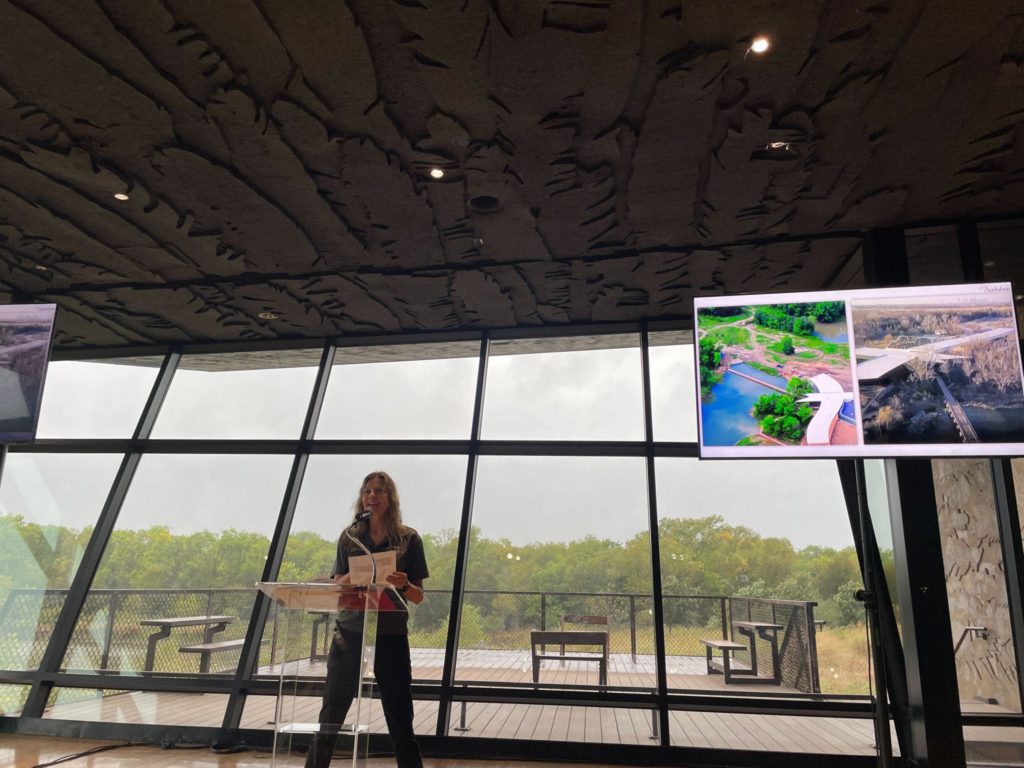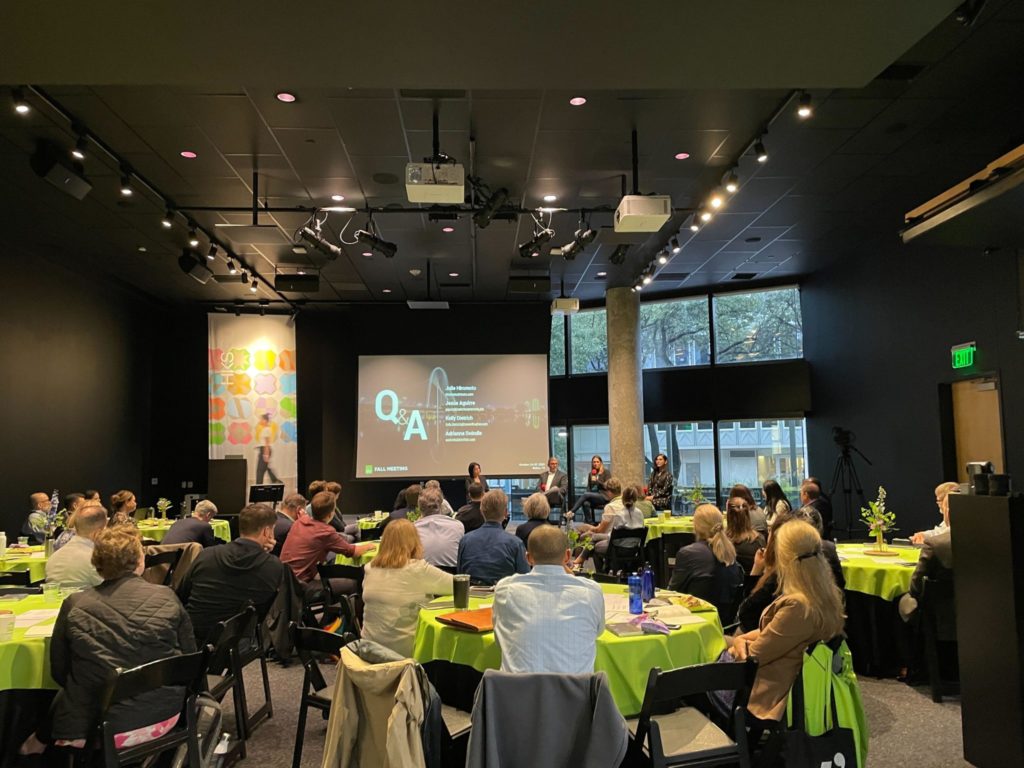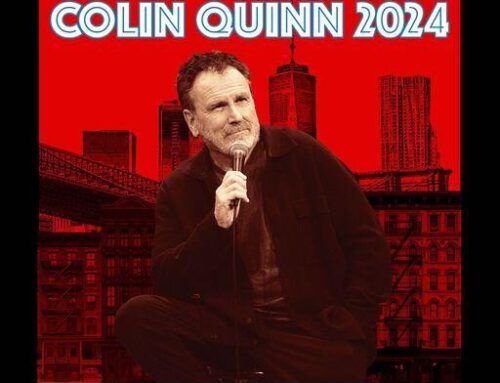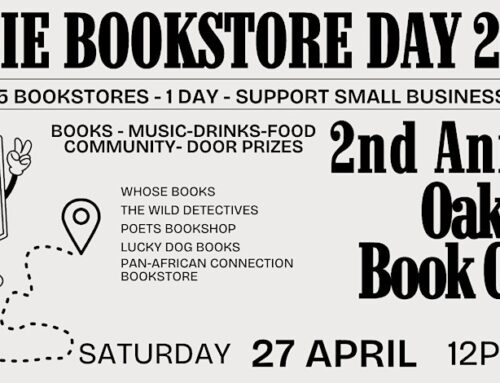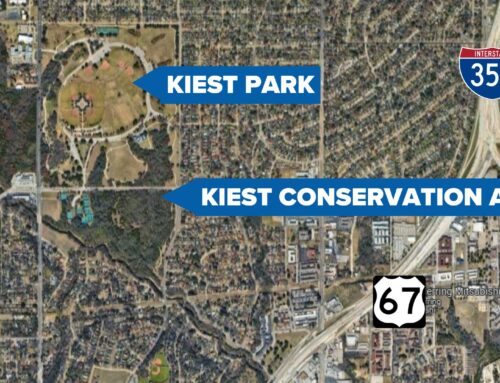Urban Land Institute held its Building Healthy Places forum discussing natural land and new developments at Trinity River Audubon Center and HKS, Inc. Monday.
As the largest network of cross-disciplinary real-estate and land experts, Urban Land Institute hosted a variety of sessions during the fall meeting and forum across Dallas until Oct. 27. This was the 15th part of the Building Healthy Places series and hosted by Urban Land Institute Foundation Governor Randall Lewis.
Trinity River Audubon Center, at the Southern edge of Oak Cliff and South Dallas, was a great example for the forum for its use of architecture and green space and its history of being built on a former illegal dumping ground (think something like Shingle Mountain). Now it’s the largest urban hardwood forest in the United States.
On site, Dr. Paul Hessburg, a research landscape ecologist with the USDA Forest Service, was the forum’s keynote speaker and discussed how wildfires have gotten worse and the impact on human settlement.
The panel discussion followed at HKS, Inc. in Downtown with real estate and architectural experts discussing keeping blue spaces (waterways), green spaces and gray spaces (sidewalks and streets) in mind when building for communities that will last.
“Water is infrastructure. We have gray infrastructure, green infrastructure, but all of it is meant to serve the community and the public,” said Julie Hiromoto, principal and director of integration at HKS, Inc., serving as panel moderator.
- Shelly White at the Trinity River Audubon Center.
- Urban Land Institute Fall Meeting at HKS, Inc.
Jesus Aguirre, CEO of Greenway Waterloo, Kelly Dietrich, director of planning and development at Howard Hughes, and Adrianna Swindle, partner at Lake | Flato, were panel speakers representing Austin, Houston and San Antonio.
Sustainability was one of the main points raised for social equity and staying mindful of how existing nature plays into future developments.
“I think we try to educate folks with our own operation to make sure that we’re setting an example for sustainability with the way that we operate the park, all of our waters and keep everything consistent,” Aguirre said.
Following up on the topic of social equity, Dietrich shared how open access to these green spaces plays a role in creating inclusive natural environments.
“We created our own rules that were extremely strict to ensure that nobody else can come in and not have that same quality and ensure that everybody has the same opportunity for outdoor recreation,” Dietrich said of developments in The Woodlands. “It’s inviting to all weather difficulties, making people feel welcome, but I think that it’s a disservice if you are just plopping boxes where people live without any connection to the built environment or the natural environment.”
Swindle suggested looking at past developments and projects in more progressive designs.
“You have to meet people where they are just like you have to meet communities where they are, and I think we can look back to look forward, Swindle said. “But all that being said, there’s a very specific process for every project that we do.”
Overall, environmental justice, climate action, making way for blue and green spaces, and land development were all on the table. More information on the Urban Land Institute’s Dallas fall meeting can be found here.

